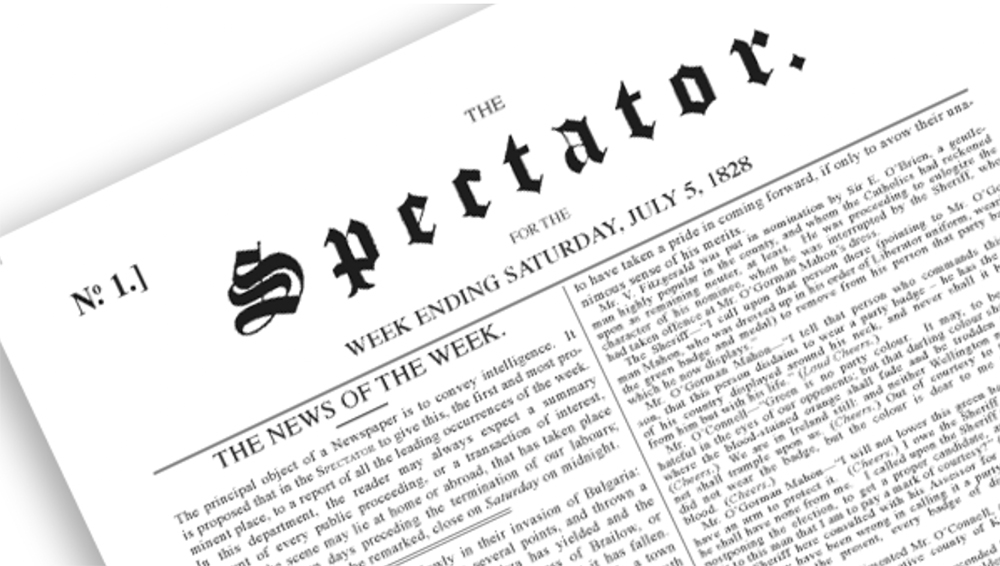It is getting to the point where I am dreading going online. For I know the minute I open my laptop I will be exposed to the grimmest images of human suffering. The internet is awash with dead Palestinians. Their broken bodies clog up social media. Their ashen remains get thousands of shares. ‘Look at this’, cry the death-sharers, as they post another photo of something that was once a human being.
The grisly trade in images of Palestinian pain is starting to feel more exploitative than insightful. It is less about raising awareness than about stoking a gut feeling. Its impact is visceral, not political. It is a pornography of death, where the role of the wretched Palestinian is to validate and flatter the heightened emotions of the laptop classes. It needs to stop. I know what people will say: it’s important to raise awareness about the hellishness of war. I’m not buying it.
It really is relentless. As Frances Nguyen at the New Republic has said, go online and you will be ‘exposed to a kaleidoscopic view of human suffering without respite’. I’m not a particularly online person and even I have seen headless children and body parts splattered on walls. One can only imagine what the TikTok generation sees under the ‘Free Gaza’ hashtag they no doubt dutifully follow.
Indeed, experts are fretting over the graphic horrors being piped into children’s gadgets. The Institute for Strategic Dialogue found that children as young as 13 are happening upon ‘graphic, distressing or violent imagery’ from Gaza. One minute they’re learning the latest TikTok jive, the next they’re seeing a human being’s insides splayed on a bombed-out road. You don’t need to be Mary Whitehouse to worry about the exposure of innocents to such chilling imagery.
This week, the horror show went mainstream. Monday night’s BBC News at Ten led with shaky footage of the most distressing scenes from Jabalia. Filmed by a nurse, the clip featured dead children, wailing mums, a grievously injured old man. Maybe it is in the public interest to show such raw pain. I don’t know. But what was striking – and, in my view, unforgivable – was the Beeb’s wrenching of these bloody scenes from their political context. All we saw was the suffering – there was barely any analysis of the war in which it occurred.
Isn’t it relevant that Hamas has regrouped in Jabalia? And that it is launching attacks on the IDF there? And that it reportedly forbade civilians from fleeing, seeming to prefer to keep them in harm’s way? And what’s more that it started this infernal war with its fascistic pogrom on 7 October? That’s the thing about the pornography of death: it promotes feeling over knowledge. Your job is to emote, not to think. Analysis is for the heartless.
One of the chilling things about this theatre of Palestinian pain is that it has convinced some that this is a uniquely cruel war. Some of us know atrocities have attended every war in history, only usually we don’t witness them. We hear about them, yes, but we rarely see them unfold in real time in the palm of our hands. What’s new about the Israel-Hamas war is that technology, for ill, has granted us a ringside seat to the fighting. And this has led the ahistorical to think the horrors they’re seeing are unprecedented, unheard of, bizarre, surreal. They aren’t – it’s just we see them instantly now instead of having to wait for history to record them.
People are being brainwashed by the vile imagery into thinking Israel is a perversely barbarous state. Every day Israel is damned as criminal, genocidal, psychotic. It is accused of carrying out a new ‘holocaust’ and of forcing the residents of Jabalia on to ‘death marches’ – calumnies, all, expressly designed to punish Jews with their own historical grief. This is where we end up when thinking is superseded by the cheap, easy passion of feeling aggrieved by violent imagery.
And the Palestinians? Do they benefit from the sharing of their suffering by western activists? I think not. Indeed, a few years ago the Palestinian psychiatrist Samah Jabr counselled against sharing ‘shocking content’ showing ‘shattered people’ in the Palestinian territories, on the basis that such ‘pictures of pain’ violate ‘the privacy and dignity of the subjects’. If you will not respect Israel’s right to defend itself from Hamas’s army of anti-Semites, surely you will respect Palestinians’ right to dignity, even in war?
Reasoned analysis, calm discussion of Israel, the privacy of pained Palestinians – it seems everything must take a backseat to the virtuous displays of the death-sharers who pose as awareness raisers.








Comments